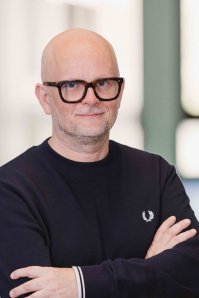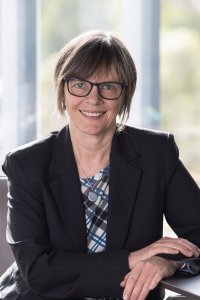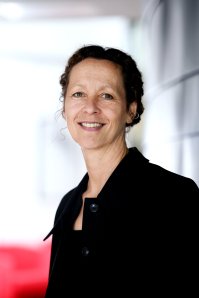Liikuntatieteen päivät 2025
Puhujat
Täältä löydät pääpuhujien esittelyt ja puheenvuorojen tiivistelmät sekä linkit teemasessioiden puhujien esittelyihin.
Pääpuhujien sekä teemasessioiden puheenvuorojen diaesitykset löytyvät välisivulta "Materiaalit".
Pääpuhujat
Simon Chadwick
 Professor Simon Chadwick is a researcher, writer, academic, consultant, advisor, and speaker, whose work focuses on leading and managing in complex environments. His particular expertise is in policy and strategy, international and global markets, as well as business and marketing. Chadwick is a Professor of Eurasian Sport Industry at Emlyon Business School, China.
Professor Simon Chadwick is a researcher, writer, academic, consultant, advisor, and speaker, whose work focuses on leading and managing in complex environments. His particular expertise is in policy and strategy, international and global markets, as well as business and marketing. Chadwick is a Professor of Eurasian Sport Industry at Emlyon Business School, China.
The Great Sporting Pivot from Global North to Global South - What it Means for Europe?
The world is amid dramatic changes – global, digital, environmental – which are having profound consequences for all aspects of life. Nowhere is this more evident than in sport, where the established global order is being upended as countries such as Saudi Arabia and China put the industry at the centre of government policy and programmes of national transformation. The world of sport is consequently pivoting, as is the world in general, from the Global North to the Global South, evidence of which can be seen in where the likes of Formula 1 races and FIFA World Cups are staged. This is beginning to have a profound impact upon Europe and European sporting hegemony. Inward investment and capital flows are impacting the balance of power, and governance models across European sport. Whilst new sports properties such as the esports World Cup in Saudi Arabia are, for example, inducing new forms of sports consumption in Europe. Sport, most notably in Europe, is thus at an important moment in its history. This presentation will examine the changes now taking place, highlight the implications of them for sport in Europe, and identify the responses that Europe may choose to instigate.
Chadwickin pääpuheenvuoro otsikolla "Europe and the New Geopolitical Economy of Sport" keskiviikkona 3.9 klo 10.15, L304
Lisa Barnett
 Dr. Lisa Barnett is a Professor of Physical Activity and Health at Deakin University’s Institute for Physical Activity and Nutrition, Australia. With an academic career spanning over 25 years, she is recognized globally as the leading researcher in motor skills (Expertscape) and is a driving force in shaping how we understand, assess, and promote physical literacy across the lifespan.
Dr. Lisa Barnett is a Professor of Physical Activity and Health at Deakin University’s Institute for Physical Activity and Nutrition, Australia. With an academic career spanning over 25 years, she is recognized globally as the leading researcher in motor skills (Expertscape) and is a driving force in shaping how we understand, assess, and promote physical literacy across the lifespan.
How Can Physical Literacy Work Towards Equality in Sport and Physical Activity?
This presentation will discuss physical literacy in relation to equality in sport and physical activity. Dr. Barnett was one of three researchers who led the process of creating the definition of physical literacy in Australia and the Australian Physical Literacy Framework for the Australian Sports Commission. Physical literacy was defined as the physical, psychological, social and cognitive competencies one should develop to enhance lifelong physical activity. The Australian Physical Literacy Framework includes 30 elements within these four broader domains, for example ‘movement skills’ in the physical domain and ‘collaboration’ in the social domain. Dr. Barnett subsequently was contracted by the Australian Sports Commission to develop the Physical Literacy in Children Questionnaire (PL-C Quest) to collect self-reported data from children on these elements. Design principles included making the central character of the pictorial images relatable for all children regardless of gender identity or ethnicity. The tool has now been requested by researchers from 27 countries across 18 language groups. Emerging data suggests good evidence of validity in different cultural contexts, albeit with context relevance variations. Implementation testing in school and sport settings shows that assessment using the PL-C Quest can lead to improved program planning for teachers and coaches. School and sport settings reach many children - boding well for equality - but to truly achieve equality, individual physical literacy capacities need to be considered in the context of enhancing environmental design and providing broader opportunities.
Barnettin pääpuheenvuoro otsikolla "How Can Physical Literacy Work Towards Equality in Sport and Physical Activity?" torstaina 4.9 klo 9.00, L304
Louise Mansfield
 Louise Mansfield is Professor of Sport, Health and Social Sciences. Her research focuses on the relationship between communities, physical activity and public health. She has conducted her work with diverse population groups in different contexts and has over 15 years’ experience of leading research projects for sport, culture and public health organisations. She has extensive expertise in partnership and community approaches to physical and cultural activity and issues of health, wellbeing, inequality and diversity. Her work includes a focus on harnessing creative strategies in the design, delivery and evaluation of complex community interventions. Louise is known for developing evidence to inform policy and practice.
Louise Mansfield is Professor of Sport, Health and Social Sciences. Her research focuses on the relationship between communities, physical activity and public health. She has conducted her work with diverse population groups in different contexts and has over 15 years’ experience of leading research projects for sport, culture and public health organisations. She has extensive expertise in partnership and community approaches to physical and cultural activity and issues of health, wellbeing, inequality and diversity. Her work includes a focus on harnessing creative strategies in the design, delivery and evaluation of complex community interventions. Louise is known for developing evidence to inform policy and practice.
The (Un)Level Playing Field: Sport, Inequality and the Myth of Inclusivity
Sport is commonly promoted as a tool for social inclusion; a way to enable individuals, communities and societies to reach their full potential irrespective of cultural identity and circumstance, and challenge. Yet, simply promoting inclusivity or having inclusive policies for sport is not enough to ensure inclusive practice. Deeper and more persistent attention is needed in addressing long-term and entrenched exclusionary tactics and marginalising processes in sport. This presentation critically examines the myth of inclusivity and highlights three key and overlapping issues connected to tokenism, failure to address complex systemic exclusionary issues and oversimplistic notions of intersectionality that reinforce the imaginary of inclusivity in sport and ensure that sport takes place in an unlevel playing field.
Mansfieldin pääpuheenvuoro otsikolla "The (Un)Level Playing Field: Sport, Inequality and the Myth of Inclusivity" torstaina 4.9. klo 10.20, L304
Teemasessioiden puhujat
Teemasessio 1: Onko meillä polkuja huippu-urheilijaksi
- Aku Nikander, Jyväskylän yliopisto: Lahjakkuuksien kehittäminen: matka läpi sosiaalisten ympäristöjen
- Minna Blomqvist, Huippu-urheilun instituutti KIHU: Matka maajoukkueeseen: nuorten maajoukkuepelaajien kehityspolut ja -ympäristöt seitsemässä joukkuepelissä
- Eetu Karvonen, Porin uimaseura, yrittäjä: Suomalaisen ja yhdysvaltalaisen valmennuskulttuurin yhtäläisyydet ja erot
Teemasessio 2: Liikunnan ohikatsotut ryhmät ja yksilöt
- Eva Rönkkö, Eläkeläiset ry: Monikielisyyden ja eriarvoisuuden kytkennät
- Riitta Latvio, Suomen Monikulttuurinen Liikuntaliitto FIMU ry: Muslimit liikkujina ja liikuttajina
- Malte Gasche, Helsingin yliopisto: Moninaista urheilu-Suomea rakentamassa - Museonäyttelyn tekeminen eritaustaisten valmentajien kokemusten kautta
Teemasessio 3: Yhteinen liikunta – eri edellytykset
- Keegan Knittle, Jyväskylän yliopisto : Liikuntaan motivointi ja liikkumiskäyttäytymisen muutos
- Päivi Armila, Itä-Suomen yliopisto: Olosuhteiden armoilla? Alueelliset erot nuorten liikuntaharrastamisen mahdollisuuksissa
- Mari Hirvonen, Itsenäisyyden juhlavuoden lastensäätiö Itla: Sosioekonomisen aseman tuomat esteet ja ratkaisuihin niiden madaltamiseksi
- Esko Halonen ja Markus Kalmari, Turun kaupunki: Turun kaupungin liikuntatoimen Boostii -rahoitusmalli
Teemasessio 4: Liikunnallinen elämäntapa
- Perttu Laakso, Jyväskylän yliopisto: Lapsuusajan liikunnan yhteydet aikuisuuteen
- Katja Sjöblom-Korhonen, Huhtasuon yhtenäiskoulu, Jyväskylän kaupunki: Koulu liikunnan ja hyvinvoinnin edistäjänä
- Katariina Tuunanen ja Kaisa Koivuniemi, Jyväskylän Ammattikorkeakoulu/Likes: Perheiden liikuntaneuvonnan nykytila
Teemasessio 5: Sukupuolten tasa-arvo liikunnassa ja urheilussa: esteitä ja mahdollisuuksia
- Satu Lidman, Turun yliopisto: Iloa ja osallisuutta! Sukupuolitietoinen liikuntakulttuuri yhteiskunnan voimavarana
- Marjukka Mikkonen, Tampereen yliopisto: Miksi sukupuolten tasa-arvo kehittyy hitaasti urheilun johtotehtävissä?
- Susanna Liljander, Porrassalmen Urheilijat -62 ry: Naisten kokemuksia miesten jalkapallon kannattamisesta – tapaustutkimus Seinäjoen Jalkapallokerhon kannattajista
Teemasessio 6: Liikuttaako ikääntyminen?
- Simon Walker, Jyväskylän yliopisto: Liikkumisrajoitukset - onko liikkumattomuus uhka terveydelle?
- Saila Hänninen, Ikäinstituutti: Ikääntyminen ja liikunta - käytännön haasteita ja ratkaisuja
- Merja Rantakokko, Jyväskylän yliopisto: Ikääntyneiden aktiivisuuden tukeminen: Ympäristötekijät ja syrjäytymisen torjunta
